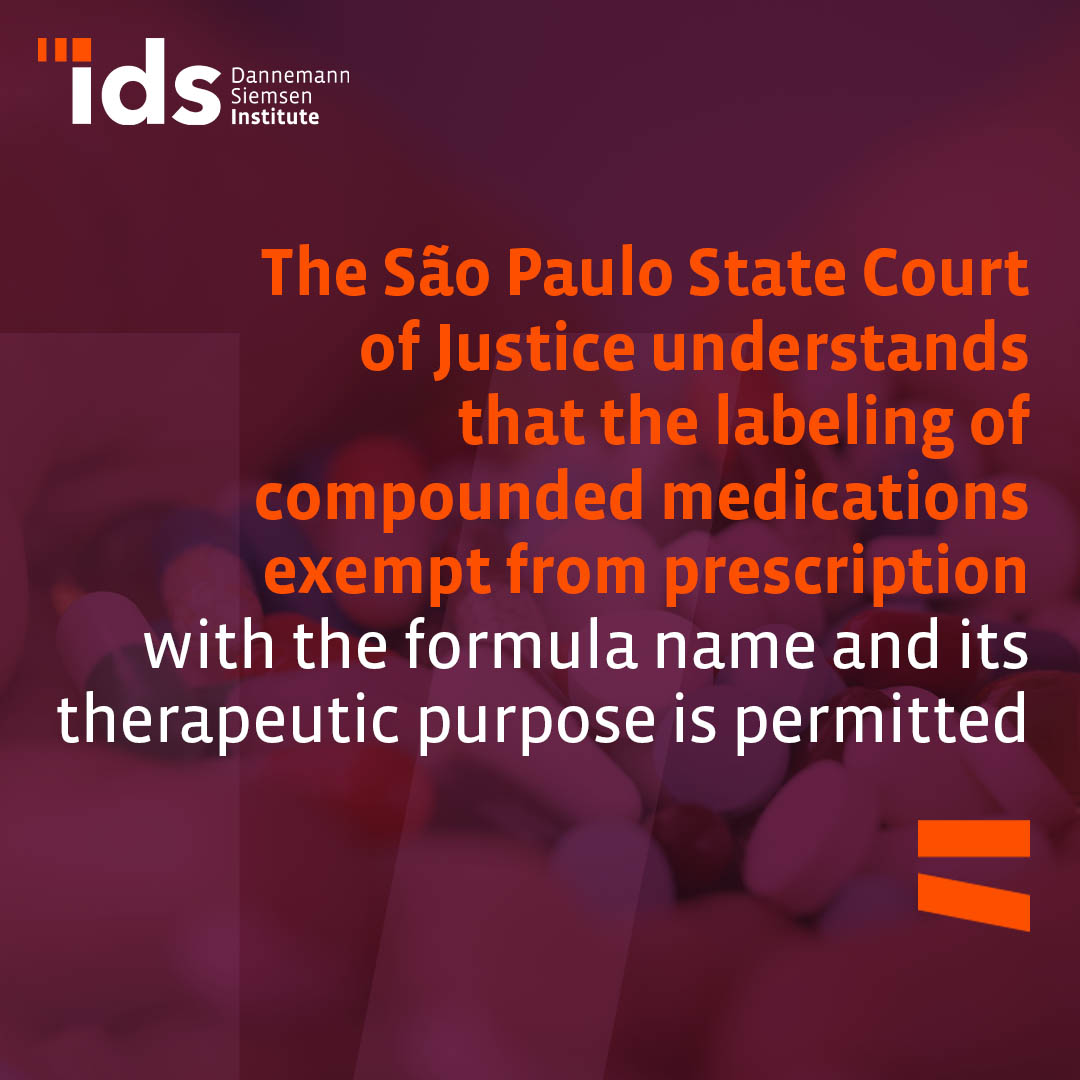03 de fevereiro de 2025
Share
The São Paulo State Court of Justice understands that the labeling of compounded medications exempt from prescription with the formula name and its therapeutic purpose is permitted
In a recent decision, the São Paulo State Court of Justice (TJSP) ruled that the labeling of compounded, non-prescription medications with the name of the formula and its therapeutic purpose is permitted. The court found that Resolution RDC No. 67/07 of the Brazilian Health Regulatory Agency (ANVISA) is illegal insofar as it prohibits this practice. The 9th Chamber of Public Law of the TJSP upheld, on appeal, a writ of mandamus filed by a compounding pharmacy against the Director of the Health Surveillance Center of the State of São Paulo. The lawsuit sought recognition that there is no legal prohibition preventing the plaintiff pharmacy or one of its branches from including the name of the formula or its therapeutic purpose on the labels of its products.
At the trial court level, the request was denied. In response, the pharmacy appealed the decision, seeking to overturn it and prevent the regulatory authority from imposing sanctions related to the commercialization of formulas labeled with their names and therapeutic purposes. The company based its argument on Article 6, item III, of the Consumer Protection Code (CDC), which guarantees consumers the right to receive adequate and clear information about products and services, with accurate specifications of their characteristics.
On appeal, the TJSP determined that while ANVISA has the authority to “regulate, control, and oversee products and services that pose a risk to public health (Article 8, caput, of Law No. 9,782/99),” the provisions of items 5.17.4 and 12 of the resolution exceed legal limits. This is because Federal Laws No. 5,991/73 and No. 6,360/75, which regulate the sanitary surveillance of medications, do not prohibit pharmacies from labeling non-prescription compounded medications with the names of formulas and/or brand names.
The ruling highlighted that Article 38 of Law No. 5,991/1973 requires pharmacies and drugstores to include on their product labels the name and address of the establishment, the sanitary license number, the technical responsible party, and the registration number with the Regional Pharmacy Council. Likewise, Articles 57 and 59 of Federal Law No. 6,360/75 establish limits on the size of characters used on medication packaging and prohibit the use of geographical names, symbols, figures, drawings, or any indications that could cause confusion or mislead consumers regarding the product’s actual characteristics or qualities. According to the decision, at no point do federal laws prohibit the use of brand names or formula names on the labels of compounded products and medications.
The court concluded that “the excessive restriction imposed by RDC No. 67/07 is illegal, as it exceeds regulatory limits” and that “the normative nature of the resolution does not authorize the creation of expansive rules beyond federal law to impose rights restrictions; it only serves to clarify and make legal provisions functional.” Based on this reasoning, the justices decided to grant the writ of mandamus in favor of the compounding pharmacy.
The decision, in Portuguese, can be accessed via the link: Ruling 1048924-26.2024.8.26.0053
Note: For quick release, this English version is provided by automated translation without human review.
